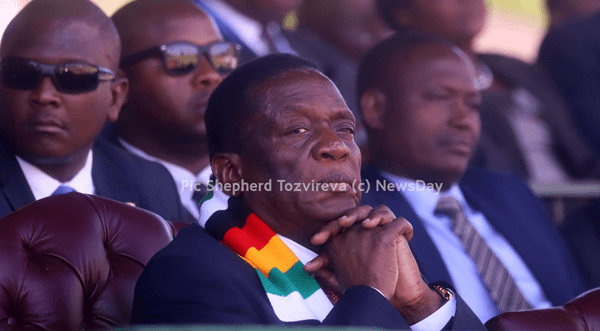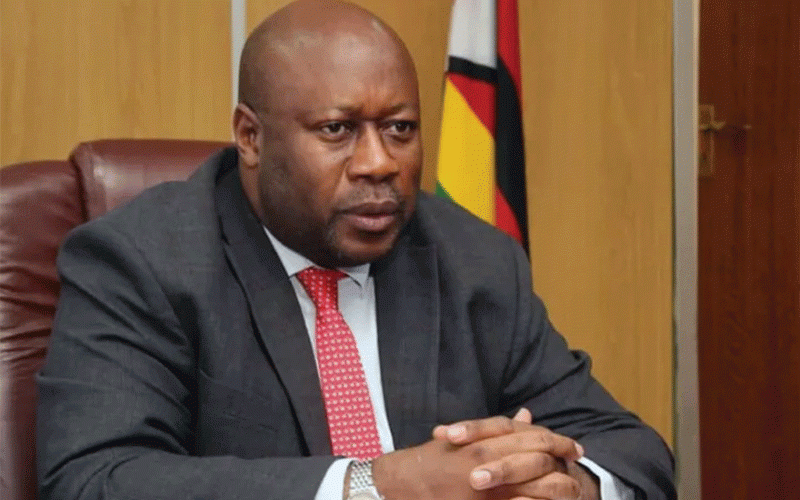
BY Pearl Matibe in the US
The government of the United States was blunt, candid and unwavering about the status of bilateral relations with Zimbabwe on October 2, United States Assistant Secretary of State for African Affairs, Tibor P Nagy, Jr emphasised unequivocally that President Emmerson Mnangagwa’s “leadership understands what the United States is looking for, before we can begin to have a normal, constructive, positive relationship with Zimbabwe.” He was speaking in Washington DC at the US Department of State.
This diplomatic parlance must not be taken out of context.
You will recall that last December, the White House unveiled its new foreign policy towards Africa — the US-Africa Strategy called, “Prosper Africa” and clearly stated: “Foreign assistance from the United States will concentrate on States that promote democratic ideals, support fiscal transparency and undertake economic reforms.”
Although it wasn’t revealed at the time which countries would be prioritised, it maintained that: “The Trump Administration does not tolerate ineffective governance and will not spend hard-earned taxpayer dollars to subsidise corrupt leaders and violators of human rights.”
Accordingly, it comes as no surprise that a week prior to Nagy’s re-stated stance on Zimbabwe, on Wednesday, September 25 on the margins of the 74th United Nations General Assembly (UNGA), leading African economies; Angola, Côte d’Ivoire, the Democratic Republic of the Congo, Kenya, Senegal and South Africa were hosted by the US government in a Roundtable Business Discussion on US Enhancing Trade and Investment in Africa, along with US private sector representatives—Citibank, Bechtel, General Electric, Google and ExxonMobil. The Washington DC-based the writer of this article attended the Lotte New York Palace Hotel event where Nagy’s boss, US deputy secretary of state, John J Sullivan—the host for the African foreign ministers and their senior officials — delivered remarks.
The roundtable was attended by senior US government representatives; deputy secretary of commerce Karen Dunn Kelley, USAID administrator Mark Green, EXIM president and chairman Kimberly Reed, OPIC acting President and chief executive officer David Bohigian, Under Secretary of State for Economic Growth, Energy and the Environment Keith Krach and Assistant Secretary of State for African Affairs Tibor Nagy. The National Security Council was represented by deputy assistant to the United States President and Senior Director for Africa Erin Walsh. Principal deputy vice president of the Millennium Challenge Corporation’s Compact Operations Kyeh Kim was also present.
John Sullivan underlined that attending the Roundtable were “flagship American companies, global iconic names — Citibank, Bechtel, GE, Google and ExxonMobil. These companies show how Americans are not only bringing significant capital, innovation and proven solutions to new and emerging markets, but they adhere to the highest standards of transparency, quality and social responsibility on the continent. They also make it a priority to hire, train and advance Africans into positions of responsibility.”
- Chamisa under fire over US$120K donation
- Mavhunga puts DeMbare into Chibuku quarterfinals
- Pension funds bet on Cabora Bassa oilfields
- Councils defy govt fire tender directive
Keep Reading
Delegations and attendees discussed mutually beneficial viewpoints on investment opportunities in the energy, transportation, banking, information technology and infrastructure sectors. Also discussed was the US foreign policy to execute and deliver on the US Administration’s Africa Strategy — the BUILD Act, Prosper Africa, and the US International Development Finance Corporation, to promote two-way trade and investment and achieve stronger commercial ties.
US officials also previewed the US International Development Finance Corporation, slated to launch later this year to expand US direct investment in Africa.
Mark Green pointed out that today, “about 60% of Africa’s 1,2 billion people are under 25. A decade from now, there will be around 320 million Africans between the ages of 15 and 24. A whole generation of young men and women with big dreams, eager for the opportunity to make their own way. The challenge of our generation is to ensure that the opportunities are there.” On US propositions; Green confirmed, “We offer a better way adding: “Some authoritarian actors have offered their so-called ‘help.’ It looks like shackles instead of self-reliance.” He said, the US believes the purpose of foreign assistance must be ending its need to exist.
The United States’ number-one priority in its efforts to execute the Africa Strategy mandate is to expand economic engagement to open markets for goods and services by establishing closer ties between the United States and African private sectors—broadening, deepening and fortifying US trade with Africa.
The reason why reiterating US current position on Zimbabwe matters is because Nagy participated in this high-level bilateral UNGA/US-Africa Business Roundtable and meetings with his African country-counterparts. Also, Southern African Development Community Heads of State have sworn allegiance to an anti-Zimbabwe sanctions campaign this October.
Consequently, the US has re-stated its foreign policy position on Zimbabwe at a US State Department briefing.
The United States’ position on Zimbabwe
The following is a transcript of the conversation between a Zimbabwean journalist and Nagy: “My name is Muchemwa Norman from The Sunday Mail in Harare, Zimbabwe. And my question is as you mentioned earlier on that you hoped for Africa and that is an encouragement for American businesses to invest in Zimbabwe. You know that Zimbabwe is open for — in Africa, rather, you know that Zimbabwe is open for business. What measures are there in place for a win-win arrangement regarding the issue of investment for the benefit of the long-suffering Zimbabweans?”
US Assistant Secretary Nagy: “Well I love that question too because I’ve had occasions several times to have dialogue at highest levels of your government and our dialogue has been very frank and honest and I’m not going to go into details because those are private discussions. But your leadership understands what the United States is looking for, before we can begin to have a normal, constructive, positive relationship with Zimbabwe.
“Now, I told you guys before that I have a very special place in my heart for Zimbabwe because not only did I help open up the embassy there shortly after the Lancaster House Agreement in 1980, I think my vehicle was the second one to cross the Chirundu Bridge going from Zambia to Zimbabwe (at independence). My kids’ were born in Harare. So I really, really appreciate the country. I appreciate the tremendous talents, the positive attributes. Unfortunately, it’s no secret; we have a problematic relationship with Zimbabwe. There’s the Zimbabwe Democracy and Economic Recovery Amendment Act, which restricts, to a certain extent, what the United States can and cannot do.
“However, there’s a very false narrative out there which I want to correct. Some people say that the United States has sanctions against the country of Zimbabwe. We do not, repeat, do not have sanctions against the country of Zimbabwe. We have sanctions against certain individuals and certain corporations and there could be greater detail on that, but not against the country of Zimbabwe. There is nothing to stop US businesses from investing in Zimbabwe, from going to Zimbabwe.
“However, again, let’s be very frank. Zimbabwe has a reputational problem. We have great concerns over how the government treats its own citizens. We have great concerns over the space that’s available for democracy and governance in Zimbabwe. We have been alarmed with how the government has treated its own citizens. So those are the issues. But as I said, we’ve had very frank, honest and open discussions between ourselves and the highest levels of your government.
“So you know, hopefully, again, you know my dream and prayer is that we can have fully normalised positive relations with every country in Africa. And Zimbabwe is near the top of my wish list.”
“Again, given the personal connections I’ve had with your beautiful, beautiful country and your wonderful people.”
On the upside, the US congress has appropriated $60 billion for Africa.
Sullivan explained that the US Government “has established embassy deal teams to deliver trade and investment opportunities for American and African businesses in a more structured fashion” which are even now resulting in successful bids by US firms that will create employment and increase production in the United States and in Africa. As proof, Sullivan provided an example: “Nevada-based Africa Growth Corporation has built close to 160 homes since 2017 and plans to build 300 more in the next two years in the Namibian residential construction market, and they can pave the way for other US companies to help address critical housing shortages and the need for more affordable housing solutions.”
The US is attempting to set its economic engagement in Africa apart from its global competitors stressing that by mobilizing the US private sector capital to build projects that are financially sustainable, it will improve underlying business climates and initiate virtuous cycles that generate more trade, investment, and growth.
Promising respect for US partners’ sovereignty; ensuring that local workers benefit from our cooperation; upholding environmental standards; combating corruption; and “producing outcomes that are built to last.” This way, Sullivan said Africa would become self-sufficient.
If Zimbabwe’s ruling leadership wishes to multiply opportunities for increased commercial partnerships with the United States, it should deliver quicker and transparently on the “private discussions” with the US government, or be more forthright, to its people on policy reforms, good governance, human rights and democratisation of the country.







